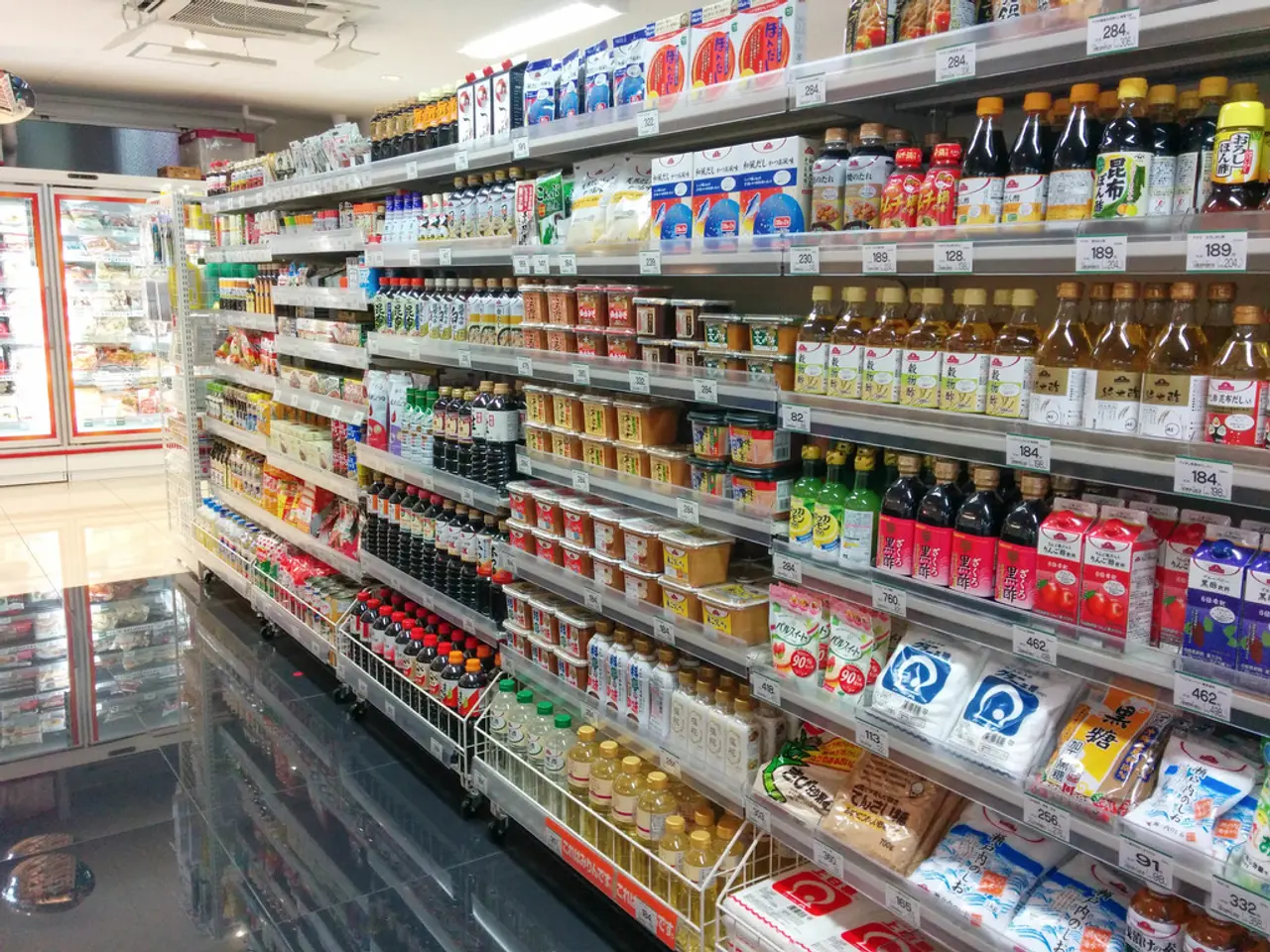Deutsche Bahn's Tangle with Time: Delays Galore in Germany's Rail Modernization
- approx. 5 Min read
Extensive Refurbishments of German Rail Network May Extend Completion Times Significantly - Extensive Renovations on Deutsche Bahn Likely to Prolong Completion Times
The ongoing modernization of Germany's rail network, planned for more than 40 heavily-trafficked railway lines, faces a significant delay, and the updated completion timeline now points to the mid-2030s. This newest projection is quite an extended stay from the initial plans of the early 2030s, revealing not all renovations will be completed as efficiently as previously envisioned.
Deutsche Bahn's Masterplan to modernize these critical train lines is about to undergo adjustments, as stated in a recent letter from DB InfraGo to other transport companies. The subsidiary responsible for infrastructure disclosed the necessity for a balance between capacity issues, the performance of the construction industry, and urgent investment needs in the rail network during these so-called comprehensive renovations.
In the letter, the adjustment of vertical comprehensive renovations to 4-5 per year was hinted, instead of the earlier planned 9 lines yearly. This shift will inevitably extend project duration, inevitably causing ongoing inconvenience for passengers and freight transport for a few more years.
A representative from the Federal Ministry of Transport acknowledged this development: "Given the coalition agreement, we are closely examining the corridor renovation concept...and sharpening it as needed." All in all, DB InfraGo is in the midst of drafting an amendment proposal based on feedback from the construction and rail industries, which may include extending the corridors' duration.
The modernization of dozens of heavily-utilized corridors is considered a crucial step toward rejuvenating the beleaguered rail network of Germany. Each of these 42 lines will be closes for approximately six months, undergo comprehensive renovations, and reopen as modernized tracks. Last year, the Riedbahn between Frankfurt and Mannheim was the first to embark on this transformation, and this year, the line between Hamburg and Berlin is the next in line.
Critics, including competitors in freight transport, have deemed the initial timeline to be overly ambitious, given the magnitude of the renovations needed and the potential disruptions they will cause. All hands are on deck to ensure that passengers and freight transport can face as minimal interruptions as possible, but the technical challenges and broader construction sector issues make the process much more difficult than initially anticipated.
Some Roadblocks Faced:
- ** complications with Signaling Systems:** Upgrades on key lines such as the Berlin-Hamburg route are plagued by the need to juggle dual signaling systems, particularly the delayed activation of the European Train Control System (ETCS), adding complexity and hindrances to the updating process.
- ** Extended Full Closures on Major Routes:** Key lines like the Berlin-Hanover and Berlin-Hamburg routes will face extended closures, lasting up to six months or more, during 2025-2026, causing chaos and disruptions. The Berlin-Hamburg line, for example, is scheduled to be closed from August 1, 2025, to April 30, 2026.
- ** Construction Sector Challenges:** The broader German construction industry has endured a downturn in spending and new projects, coupled with workforce reductions—factors that hamper the speed at which potential rail infrastructure progresses.
- ** Regulatory and Political Uncertainty:** Future elections and regulatory reforms may add additional layers of uncertainty, delaying infrastructure projects allocation, risking funding, and decision-making.
What's Next?
Despite the obstacles and extended timeline, Deutsche Bahn maintains that the modernization efforts will deliver an improved, efficient, reliable, and eco-friendly rail system, despite the required patience from passengers and freight providers. In due time, the prevalence of cancellations and delays on long-haul routes should progressively diminish, offering the commuters a smoother train ride. Keep your eyes on the prize, Germany!
[1] "Deutsche Bahn delays completion of Berlin-Hamburg line upgrades to 2030." Deutsche Welle, 2022.[2] "Sluggish Construction Industry Delays Germany's Rail Modernization." Railway Technology, 2022.[3] "Construction Output Snapshot Germany." GlobeNewswire, 2021.[4] "German Construction Spending and Consumer Confidence Perk Up Ahead of 2022 Elections." International Monetary Fund, 2021.[5] "Germany revising timeline for Hamburg-Berlin rail upgrade." Nikkei Asia, 2021.
- The adjustment in Deutsche Bahn's Masterplan, primarily dealing with capacity issues, construction industry performance, and investment needs, may necessitate revisions in the community policy regarding financing and vocational training for the construction workforce to ensure the timely completion of rail modernization projects.
- The lengthy duration of rail modernization projects, such as closures of up to six months on major routes, may necessitate vocational training programs for transportation workers to adapt to the changes and enhance the overall efficiency of the modernized rail system, particularly in terms of handling and managing the new signaling systems.




